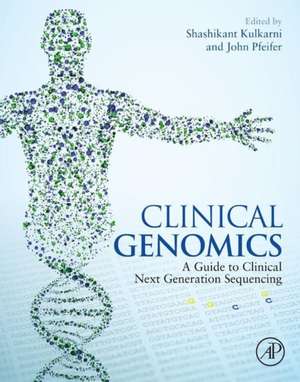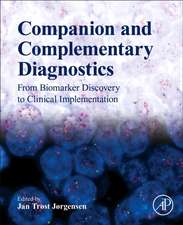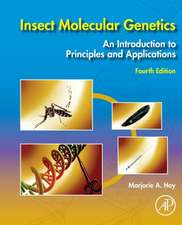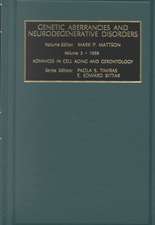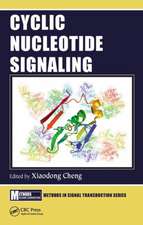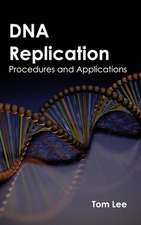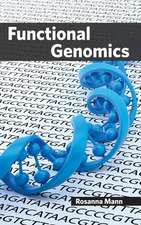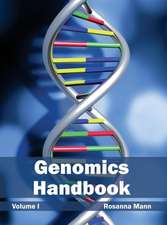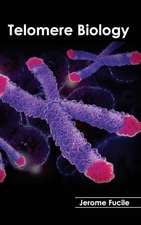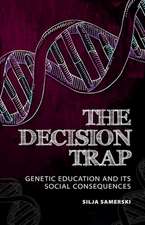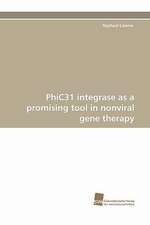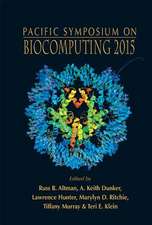Clinical Genomics
Editat de Shashikant Kulkarni, Somak Royen Limba Engleză Hardback – 11 noi 2014
This book is also focused on the challenges of diagnostic interpretation of NGS results in a clinical setting. Its final sections are devoted to the emerging regulatory issues that will govern clinical use of NGS, and reimbursement paradigms that will affect the way in which laboratory professionals get paid for the testing.
- Simplifies complexities of NGS technologies for rapid education of clinical genomicists and genomic pathologists towards genomic medicine paradigm
- Tried and tested practice-based analysis for precision diagnosis and treatment plans
- Specific pipelines and meta-analysis for full range of clinically important variants
Preț: 707.85 lei
Preț vechi: 913.12 lei
-22% Nou
Puncte Express: 1062
Preț estimativ în valută:
135.49€ • 147.22$ • 113.89£
135.49€ • 147.22$ • 113.89£
Carte tipărită la comandă
Livrare economică 14-28 aprilie
Preluare comenzi: 021 569.72.76
Specificații
ISBN-13: 9780124047488
ISBN-10: 0124047483
Pagini: 488
Dimensiuni: 216 x 276 x 25 mm
Greutate: 1.54 kg
Editura: ELSEVIER SCIENCE
ISBN-10: 0124047483
Pagini: 488
Dimensiuni: 216 x 276 x 25 mm
Greutate: 1.54 kg
Editura: ELSEVIER SCIENCE
Public țintă
Clinical Genomicists, Molecular Pathologists, molecular Geneticists, clinical Cytogeneticists, Clinical Geneticists, Primary Care Physicians (including Oncologists, Pediatricians, Neurologists, Cardiologists, and Neonatologists) and Genetic Counselors seeking to use or interpret Next Gen Sequencing in the diagnosis, prognosis, and management of inherited and somatic disorders in the era of precision medicine.Cuprins
Section 1: Methods
- Overview of technical aspects and chemistries of NGS: Dr Robi Mitra, Washington University School of Medicine.
- Non-selective methods (genome-wide): Dr Mark Bogoski, Harvard Medical School
- Capture based methods (exome, panels) Dr Birgit Funke, Harvard Medical School
- Amplification based methods (panels): Dr Madhuri Hegde, Emory Medical School
- Emerging technologies (Nanopore and others); impact on cost and turnaround time: Dr Elaine Mardis, Washington University School of Medicine.Section 2: Bioinformatics
- Base calling and alignment; quality metrics; depth of coverage: Dr Carl Volkerding, University of Utah, ARUP labs
- Single nucleotide variants (SNVs): Dr David Spencer, Washington University School of Medicine
- Insertions and deletions (Indels): Drs Eric Duncavage and Haley Abel, Washington University School of Medicine
- Large structural alterations (big deletions, translocations, and so on): Dr Charles Mullighan, St Jude’s Cancer Institute
- Copy number variants (CNVs): Dr Mary-Claire King, University of WashingtonSection 3: Interpretation
- Reference data bases for disease associations: Dr Heidi Rehm, Harvard Medical School
- Reporting of results; level of evidence for associations; classes of associations: Dr Shashikant Kulkarni, Washington University School of Medicine
- Constitutional diseases (with individual chapters on hypertrophic cardiomyopathy, congenital deafness, blindness, cancer syndromes, and so on): Dr David Bick and Dr David Dimmock, Medical College of Wisconsin
- Cancer (with individual chapters on leukemia, lymphoma, lung cancer, colon cancer, and so on): Dr John Pfeifer, Washington University School of MedicineSection 4: Regulatory Issues
- Assay validation: Dr Ira Lublin, CDC and Dr Elizabeth Mansfield FDA
- QA/QC/PT issues: Dr Elaine Lyon, University of Utah, ARUP labs
- Consent and privacy issues: Dr James DuBois, Albert Gnaegi Center for Health Care EthicsSection 5: Reimbursement
- Billing: Andrew Drury and Kris Rickoff, Washington University School of Medicine
Recenzii
"...presents key bioinformatic challenges and the solutions that must be addressed by clinical genomicists and genomic pathologists, such as specific pipelines for identification of the full range of variants that are clinically important." --Anticancer Research, February 2015
